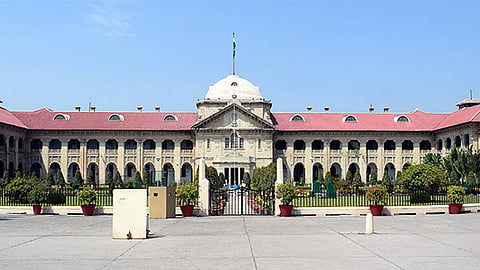Live-in relationships go against middle-class norms, harm women more: Allahabad HC
LUCKNOW: Observing that live-in relationships disproportionately harm women in the event of a breakup, as men can easily move on and settle down after marriage while women struggle to find a life partner, the Allahabad High Court remarked that such arrangements go against the settled norms of middle-class Indian society.
The single-judge bench, comprising Justice Siddharth, expressed displeasure at the rising number of such cases reaching the courts. "The concept of live-in-relationship goes against the interest of the women since a man can marry even after live-in-relationship (with) a woman or number of women but it is difficult for the women to find a life partner after a breakup," Justice Siddharth noted.
The court further said, "This Court finds that after live-in-relationship has been legalised by the Apex Court, the Court had fed up such cases. These cases are coming to the Court because the concept of live-in-relationship is against the settled law in the Indian Middle-Class Society."
These remarks came while the court was hearing the bail plea of an accused named Shane Alam, who had been booked under various provisions of the Bharatiya Nyaya Sanhita (BNS) and the Protection of Children from Sexual Offences (POCSO) Act. He was accused of engaging in a physical relationship with the prosecutrix on the false assurance of marriage and later reneging on his commitment.
Advocate Madhu Yadav, appearing for the informant, argued that the actions of the accused had ruined her entire life, claiming that no one would now be willing to marry her.
Taking note of the argument, the court observed that while the idea of live-in relationships had attracted the younger generation, its consequences were evident in cases like the one before it.
However, the bench granted bail to the accused on 24 June this year, considering his continued incarceration since 25 February, the nature of the allegations, the absence of any prior criminal history, and overcrowding in jails. Advocate Satish Chandra Singh appeared for the bail applicant/accused.

